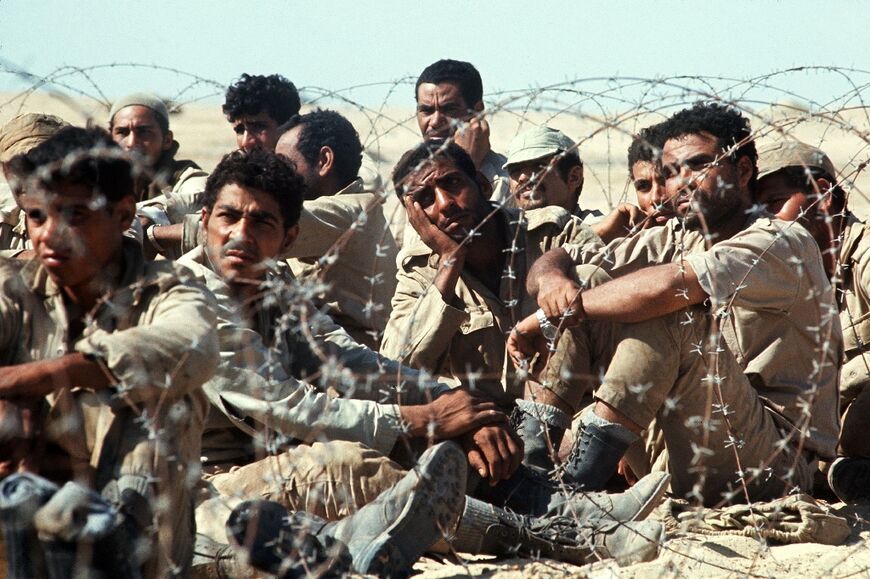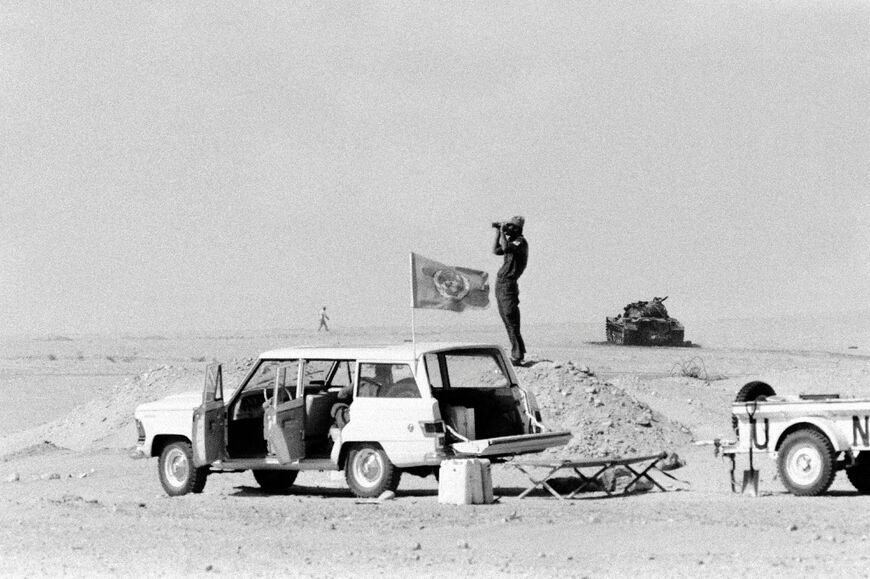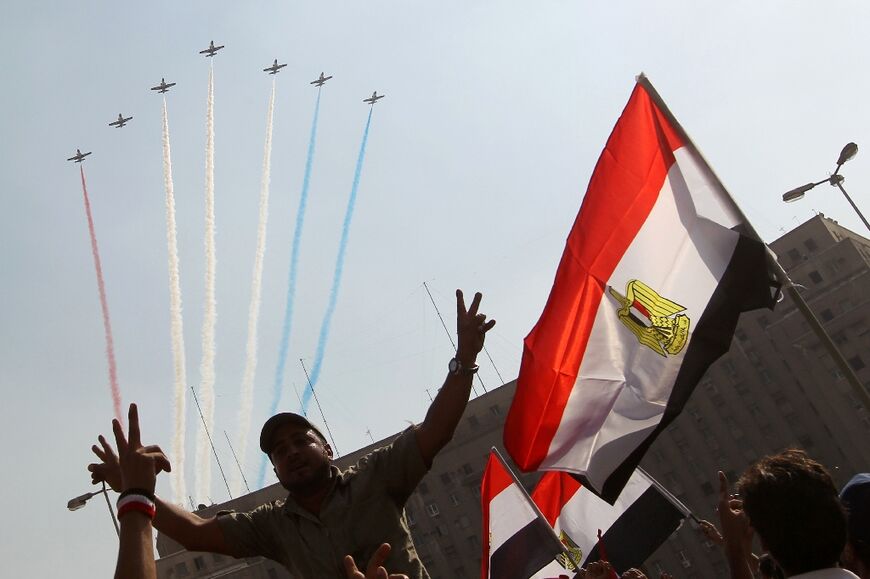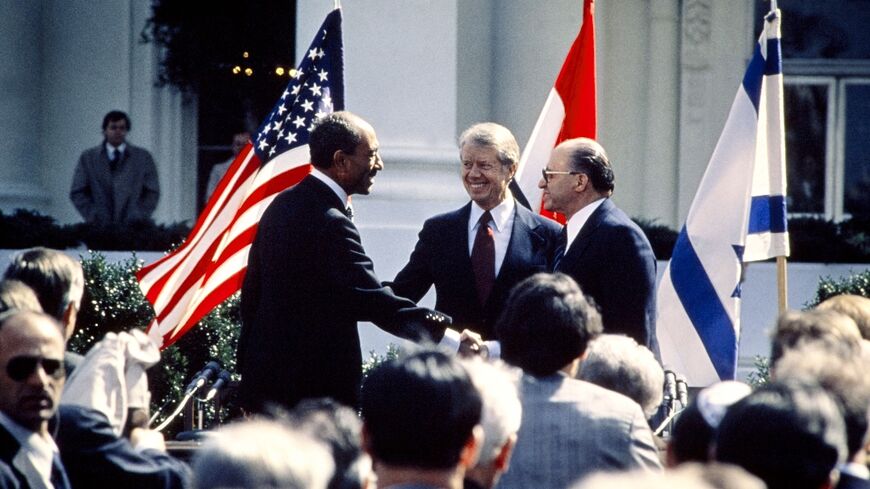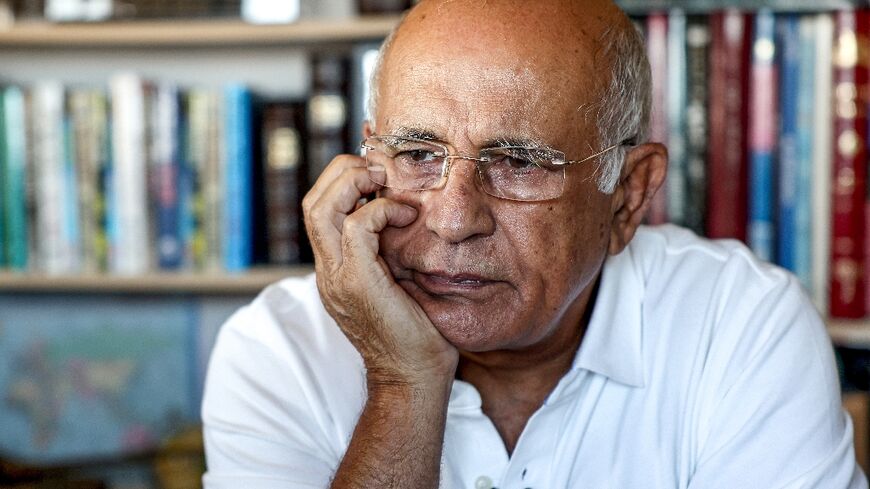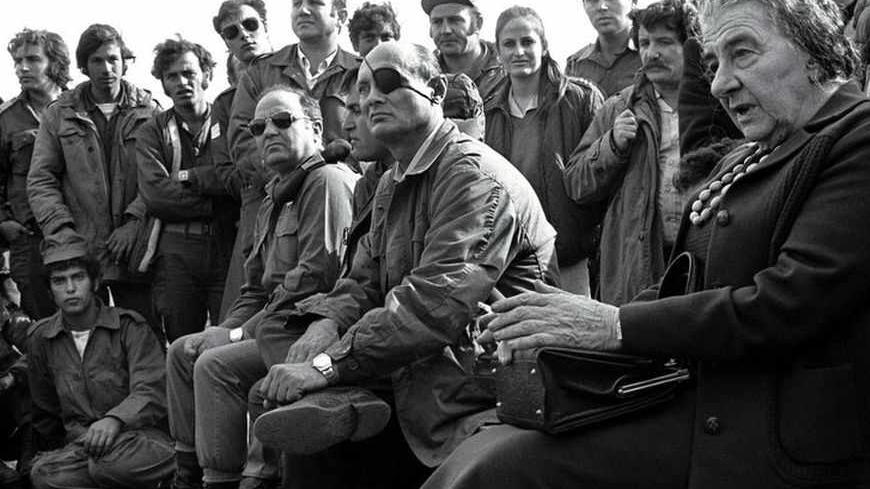Egypt 1973 'victory' shaped nation but now a fading memory
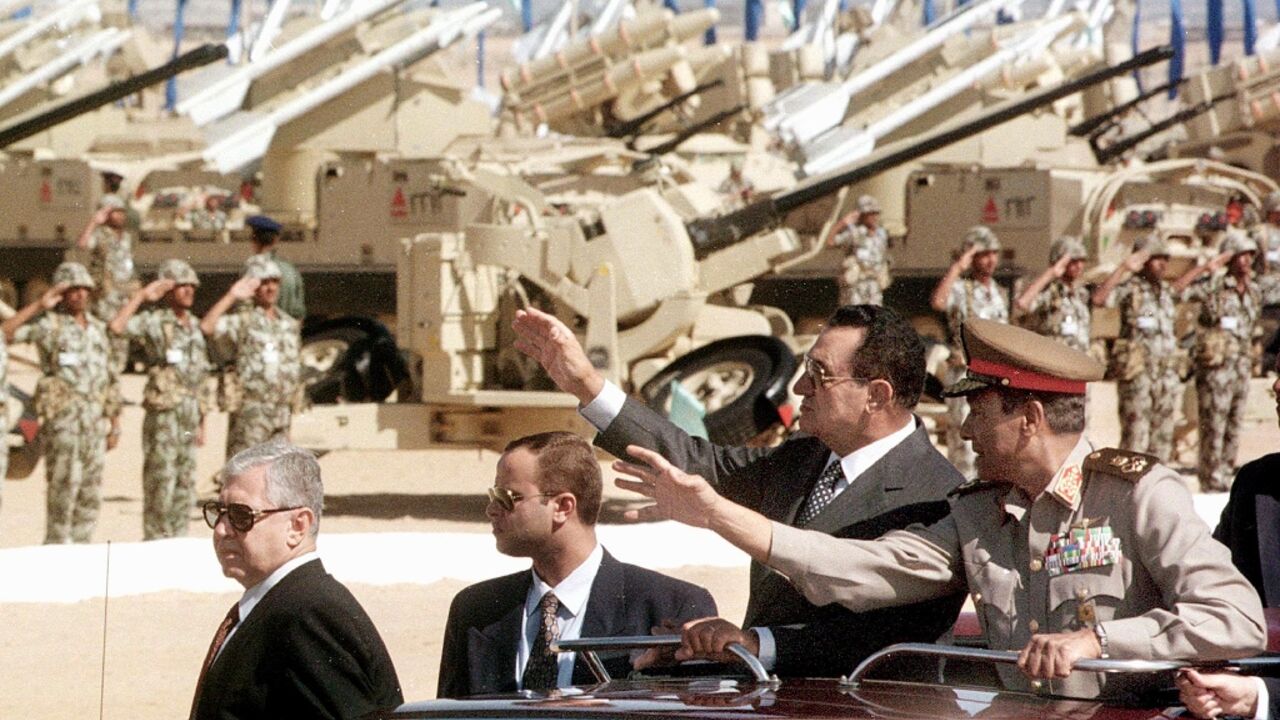
Fifty years after what Egypt celebrated as its "October victory", the memory of the 1973 war against Israel that has shaped the Arab nation's politics and diplomacy is fading.
Successive Egyptian presidents over the course of decades drew legitimacy from their military past fighting Israel.
Egypt's current leader, President Abdel Fattah al-Sisi, is a rare exception. Having only enlisted in a military academy the year the war took place, he did not take up arms against neighbouring Israel.
Yet, he has still capitalised on this chapter in national history.
On October 6, 1973, Egypt and Syria launched a surprise attack, pushing Israeli forces seemingly to the verge of defeat before they recovered, supported by a United States airlift.
Within three weeks, a United Nations-validated ceasefire had taken effect.
On the war's 49th anniversary last year, Sisi hailed a "day of pride and dignity" which showed "the capability of the Egyptian and his superiority during the most difficult moments".
His remarks may resonate with Egyptians living through more than a year of painful currency devaluations and inflation which has surged to record levels.
Sisi now leads a nation where young people are the majority, with official figures showing that about 85 percent of Egypt's 105 million people were not alive to experience the 1973 war and its immediate aftermath.
Decades of war have made the Egyptian military a powerful actor in the country's economic and business affairs, as well as security matters.
Only one president did not come from its ranks, the late Islamist leader Mohamed Morsi who was elected but deposed in 2013 by then-army general Sisi.
Anwar Sadat, Egypt's president during the 1973 war, went on to sign a peace agreement with Israel in 1979, setting a precedent for the Arab world.
His leadership in war earned Sadat "legitimacy that could substitute for that of his predecessor" Gamal Abdel Nasser, hero of the 1952 revolution which overthrew the monarchy, said historian Tewfik Aclimandos of the Egyptian Center for Strategic Studies.
- 'Army of victory' -
After Sadat's assassination by members of an Egyptian jihadist group in 1981, Hosni Mubarak ruled for three decades and also benefited from the October war's legacy.
Mubarak -- Sadat's air force commander in 1973 -- presented himself as a "hero of the aerial campaign", Aclimandos told AFP.
Today "all that seems quite far for the new generation", he said.
Young Egyptians "don't have access to serious books in Arabic on the issue", and only "people who lived through the war remember the fear and the constraints of wartime economy", the historian added.
Sisi's war has not been against Israel but "terrorism", particularly in the Sinai Peninsula where jihadists loyal to the Islamic State group have waged a years-long insurgency.
Israel seized the vast desert region bordering the Suez Canal during the Six-Day War of 1967, dealing a humiliating blow to Egypt and its military might.
Seeking to restore a sense of dignity as well as its image in the Arab world and the broader Cold War-era Non-Aligned Movement, Egypt made Sinai the heart of its 1973 military campaign.
On October 6, Egyptian forces crossed the Suez Canal in their surprise attack during the Jewish fast of Yom Kippur.
At the same time, Syria and other Arab allies attacked the occupied Golan Heights -- held to this day by Israel, which annexed it in a move not recognised by the UN.
Israeli forces eventually repelled the Arab attacks.
Cairo regained some territory in Sinai during the war, but only brought the entire peninsula back into Egyptian hands under the 1979 peace deal.
The events left Egypt's military "an army of victory, contrary to the army of defeat of 1967," said Amr al-Shobaki, a political analyst with the Al-Ahram Center for Political and Strategic Studies.
- 'Right choice' -
The October war confirmed Egypt's exit from the Soviet Union's sphere of security influence, "and secured its position within a wider security paradigm in the West," said H. A. Hellyer of the Royal United Services Institute in London.
Egypt became one of the largest recipients of US military aid, which this year exceeds $1.2 billion.
In a "world with different poles of influence", Egypt "doesn't want to alienate Russia, China or India" while maintaining close ties with its US, Gulf and Western allies, Hellyer told AFP.
Cairo now is far from alone in the region in recognising Israel, which at the time provoked anger across the Arab and Muslim world -- including from the assassins who killed Sadat.
Jordan signed a peace agreement in 1994.
In 2020, the United Arab Emirates, Bahrain and Morocco all normalised relations with Israel under US-backed deals. Washington is pushing for a similar pact between Saudi Arabia and Israel.
"Sadat wouldn't have been surprised," said Shobaki. "At the time, he was totally convinced he had made the right choice by signing the peace."
But while governments may make amends, ordinary people have not been convinced. For many Egyptians, Israel remains a bitter enemy.


